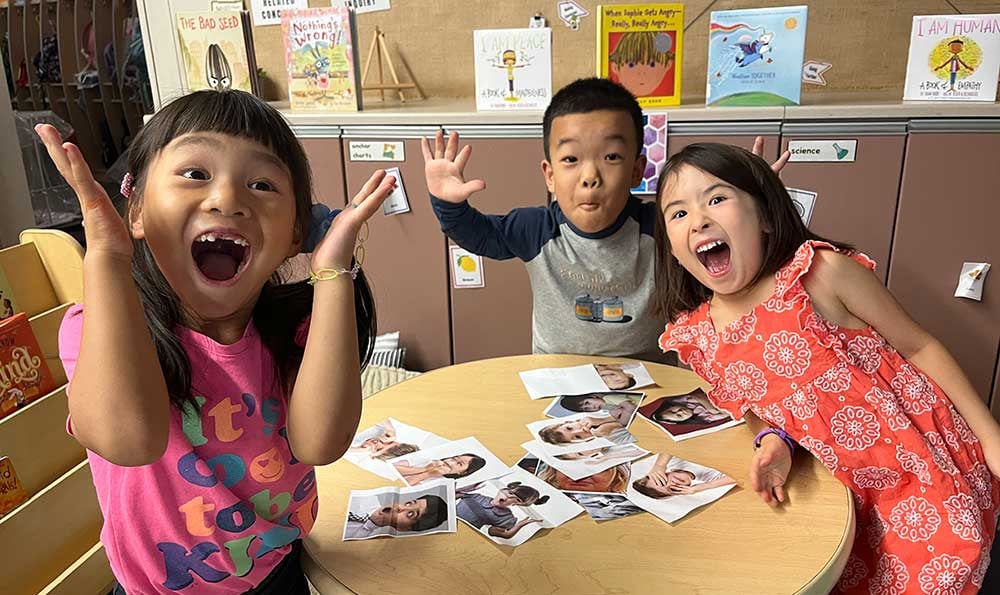
At Nagoya International School (NIS), inquiry-based learning lies at the heart of our educational philosophy. It is a dynamic approach that empowers students to take ownership of their learning by fostering curiosity, critical thinking, and active engagement with the world around them. But what exactly is inquiry-based learning, and why is it so important in today’s educational landscape?
What is Inquiry-Based Learning?
Inquiry-based learning is a student-centered approach that encourages learners to explore questions, problems, and topics that intrigue them. Instead of passively receiving information, students actively seek out knowledge, ask questions, and discover solutions through research, experimentation, and collaboration. This type of learning encourages deeper learning and helps students develop key skills such as critical thinking, creativity, problem-solving, and independence.
At NIS, we believe the most meaningful learning happens when it begins with questions. This is why “Inquire” is the first of our three ‘I’s and one of the core pillars of our mission! As a part of our guiding principles, we often say: “We don’t want students to answer the questions – we want them to question the answers.” By doing so, students ignite their passions and activate their curiosity, leading them toward deeper, richer learning experiences.
The Wonder Wall
A perfect example of inquiry-based learning in action was the Wonder Wall in one of our Grade 1 classrooms. This initiative began with students generating their own questions—questions that stem from their observations, interests, and musings about the world. The Wonder Wall became a visual space where these inquiries could take shape, guiding the following projects and explorations. For example, one day a whole class activity had them contemplating a couple of connected questions: “How is ice made?” and “How are igloos built?” These simple yet profound questions led the class into a hands-on investigation.

The students explored the properties of water and ice, observing how water freezes and melts. They learned about the science of temperature, condensation, and solid-liquid transitions through group exploration. Moving further, they studied the cultural significance and engineering of igloos, discovering how indigenous Arctic communities use ice and snow to create stable, insulated shelters. Through this project, students weren’t just learning facts—they were engaging with the scientific process, thinking like engineers, and building an appreciation for both the natural world and human ingenuity.
Another powerful project emerged from a question that resonates with learners of all ages: “What are emotions, and how do they look?” The first graders set out on an exploration of emotions through picture books, investigating how different cultures represent feelings like happiness, anger, sadness, and surprise.

The project took a playful yet introspective turn when students began to practice exaggerated emotional expressions using their own faces. They observed how their classmates’ faces changed as they acted out emotions, gaining insights into body language, empathy, and cultural nuances of emotional expression. By engaging in this creative inquiry, they didn’t just explore the surface-level aspects of emotions but developed a deeper understanding of human experience and communication.
Why Inquiry Matters at NIS
These first-grade projects exemplify why inquiry-based learning is so crucial at NIS. By encouraging students to pursue their own questions, we help them develop the critical thinking and problem-solving skills they need to navigate an increasingly complex world. As they engage with their surroundings in a spirit of inquiry, their natural curiosity is transformed into a powerful learning tool, enabling them to make meaningful connections between ideas and deepen their understanding.

As a community, we strive to bring the NIS mission to life in the classroom for students of all grades. Our focus on inquiry, as one of the three I’s that drive our mission, ensures that our students not only learn but thrive as they engage with their world, driven by wonder and curiosity.
Through projects like the Wonder Wall and many others, our learners are not just answering questions—they’re learning to question the answers, sparking a lifelong passion for exploration and discovery. As they grow and progress to higher grades, this skill of inquiry grows to become second nature and their questions become more profound, sparking even deeper exploration.
To see other examples of how this approach impacts learning at NIS, check out the Inquiry page on our website to see how NIS students question their world every day!







